Beetroot is one of those summer vegetables that you’d love to eat. Beetroot juice, while being super healthy for humans, tastes delicious. However, if you are a cat owner, there is a chance that your cat might be interested in tasting beetroot.
After all, your cat deserves to taste all the delicacies you enjoy. If you love eating beetroot and want to know about the can cats eat beetroot?
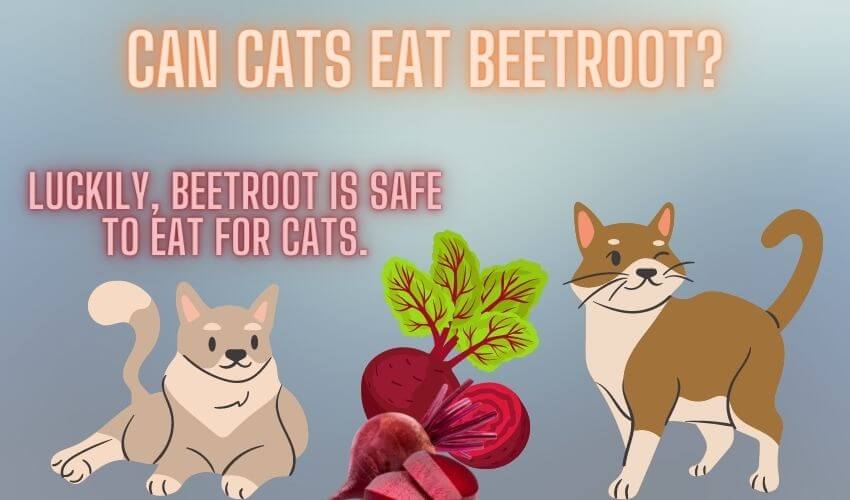
You might have thought about whether your cat can eat them too. Will consuming beetroot affect your cat, or is it nutritious for them, just like humans? Luckily, beetroot is safe to eat for cats, and you can afford to let them taste this beneficial vegetable every once in a while.
Can cats eat beetroot?
If your cat seems interested in eating beetroot, it can be a fun addition to its food intake. However, it would be best if you did not feed beetroot in large amounts or every day. Small bites of the vegetable once a week would be enough for your cat. If you want to know more about whether your cat can eat beetroot, keep reading.
Have a look at can cats eat yam
Is beetroot poisonous to cats?
According to the American Society for the Prevention of Cruelty to Animals (ASPCA), beetroots are marked as safe for consumption by cats in moderate quantities. They are non-toxic for cats and other pets like dogs and horses. Hence, you can feed beetroot to your cat without worrying about it being poisonous.
How much beetroot is safe for cats?
Beetroot should not exceed 10% of your cat’s daily caloric intake. Anything above the specified amount can be harmful to the cat’s health. As a precaution, you should always look out for warning signs in your cat after they eat beetroot. These include
- Diarrhea
- Vomiting
- Lack of appetite
- High fever
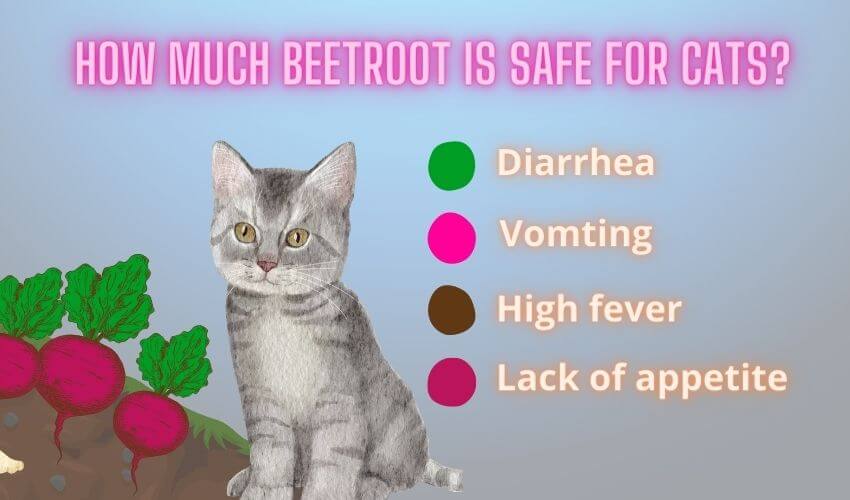
If any of these symptoms appear in your cat, you should contact a veterinary doctor immediately. Be mindful that beetroot should not replace your cat’s regular meals, nor should you feed them beetroot every day.
Ideally, you’d want to allow your cat to munch on beetroot in small quantities. Consequently, it may save your cat from the potential health risks due to unnecessary consumption of beetroot.
Can cats eat boiled beetroot?
Boiled beetroot is safe for cats and poses no health risks if consumed in moderation. Although cats can eat boiled beetroot, there are no known nutritional benefits of feeding it to your cat. It can be a unique addition to your cat’s meal as a rare treat. Or, you can feed it to your cat if it shows interest in eating boiled beets at all.
Check out can cats eat potatoes
Beet pulp benefits for cats
Defying the common myths, beet pulp has a lot of health benefits for cats. One of the several benefits of beet pulp is that it acts as an abundant source of fiber. Consuming it can promote improved digestion in humans and animals, including cats.
Beet pulp contains soluble fiber that improves the absorption of food. Meanwhile, its insoluble fiber content helps in dietary satisfaction and promotes the required consistency of stool in cats.
Another benefit of feeding beet pulp to your cat is that it helps your cat poop more hairballs instead of barfing them around the house. Studies suggest that fiber aids the movement of the ingested hairballs through the cat’s digestive system. Therefore, cats who consume beet pulp tend to poop out more hairballs.
Can cats eat pickled beetroot?
Pickled beetroot or any other pickled vegetable can be detrimental to your cat’s health. Because it contains an excessive amount of salt, it can reduce the feelings of thirst in these feline animals. Consequently, it can cause severe dehydration in cats. In worst cases, it might even result in malnutrition.
Moreover, pickled beetroot contains a considerable amount of salt, far more than your cat’s daily sodium tolerance. If consumed, it can increase blood pressure and extreme salt poisoning in your cat. As a result, your cat might suffer from vomiting, diarrhea, bloating, excessive urination, and even seizures.
Beware that pickled beetroot also contains a fair amount of garlic as an ingredient. Even consuming a minute amount of garlic can result in your cat suffering from anemia. Some studies claim that consuming garlic in large amounts can even result in the death of your cat.
If your cat does not receive timely treatment after showing the above symptoms, it could suffer from kidney damage, coma and eventually die. Therefore, you should not even think about feeding pickled beetroots to your cat. Instead, try to keep the cat away from pickled vegetables.
Frequently Asked Questions
Can cats drink beet juice?
Beet juice is popular among humans due to its nutritional value and delicious taste. It contains several ingredients, none of which are toxic for cats. Therefore, feeding your cat beet juice in moderation won’t harm them.
Is beet juice safe for cats?
Beet juice is high in sugar content. Therefore, it may not be suitable for your cat’s diet. It can also be detrimental to your cat’s health if already suffering from gastrointestinal issues.
Can cats eat beetroot leaves?
Yes, cats can eat beetroot leaves. They are safe to consume for cats; however, beetroot leaves should not form a significant portion of their diet. Beetroot leaves do not serve any nutritional benefits to your cat’s health. Whereas most cats might not even like eating those leaves.
Are beet greens OK for cats to eat?
The mature leaves of beetroot contain a significant amount of oxalic acid that increases the risk of calcium oxalate crystal formation. Consequently, it can cause damage to your cat’s kidneys. Therefore, beet greens are a fine addition to your cat’s diet if consumed in small amounts.
Conclusion
Your cat might love consuming beetroot as an occasional treat due to its distinct flavor. But, you must ensure that it does not become a significant part of your cat’s daily caloric intake. Meanwhile, make sure that your cat stays away from consuming pickled beetroot. Instead, feed raw beetroot to your cat in moderation, as it’s safe to eat for cats.

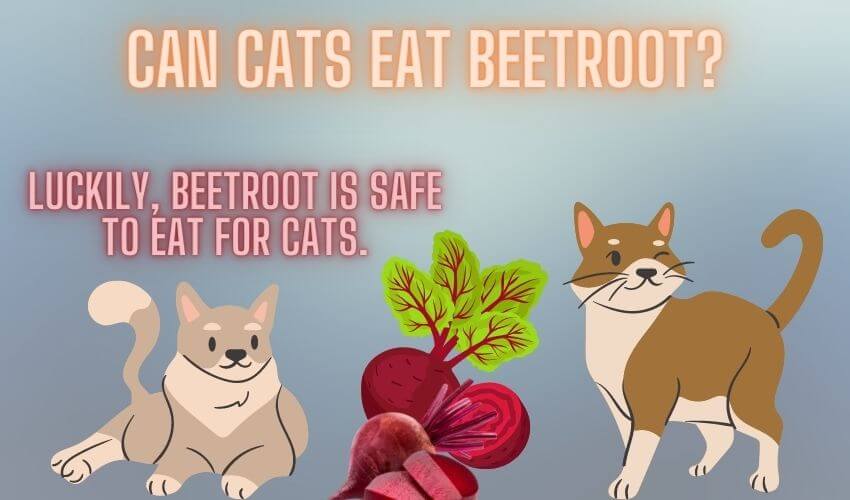
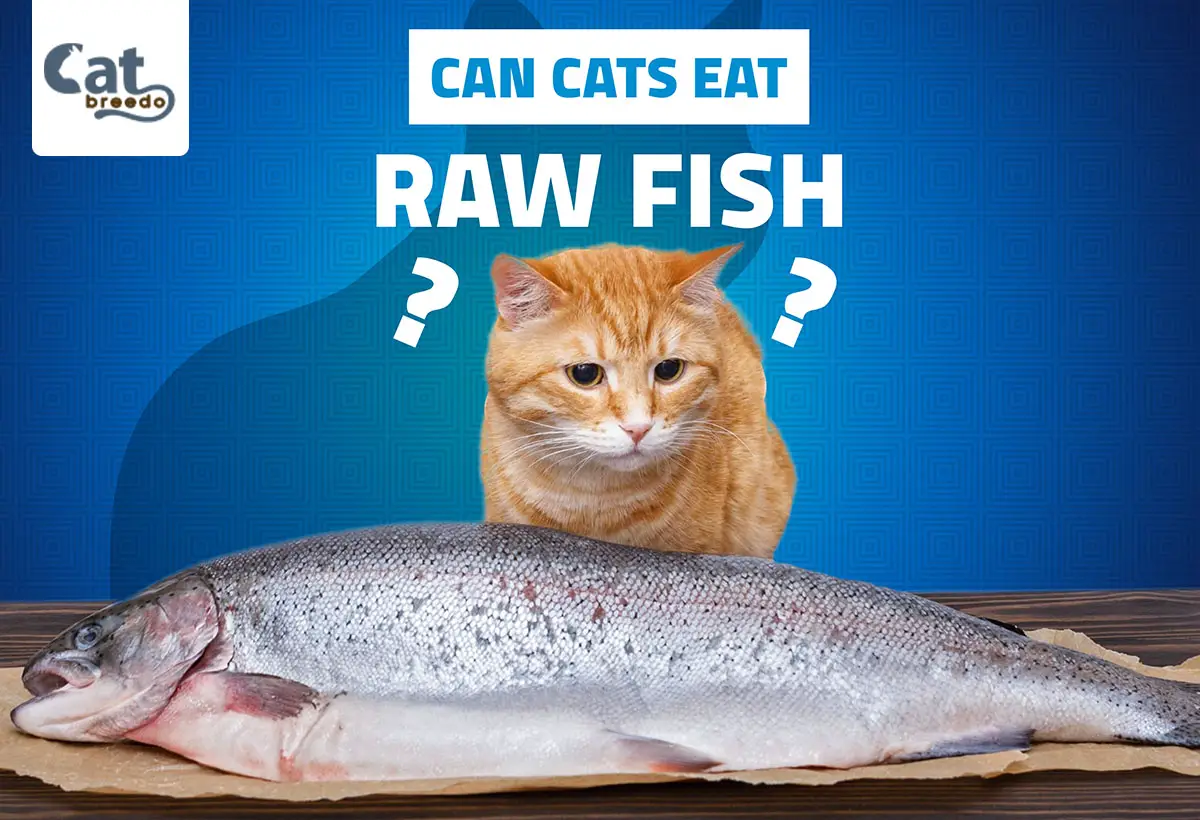
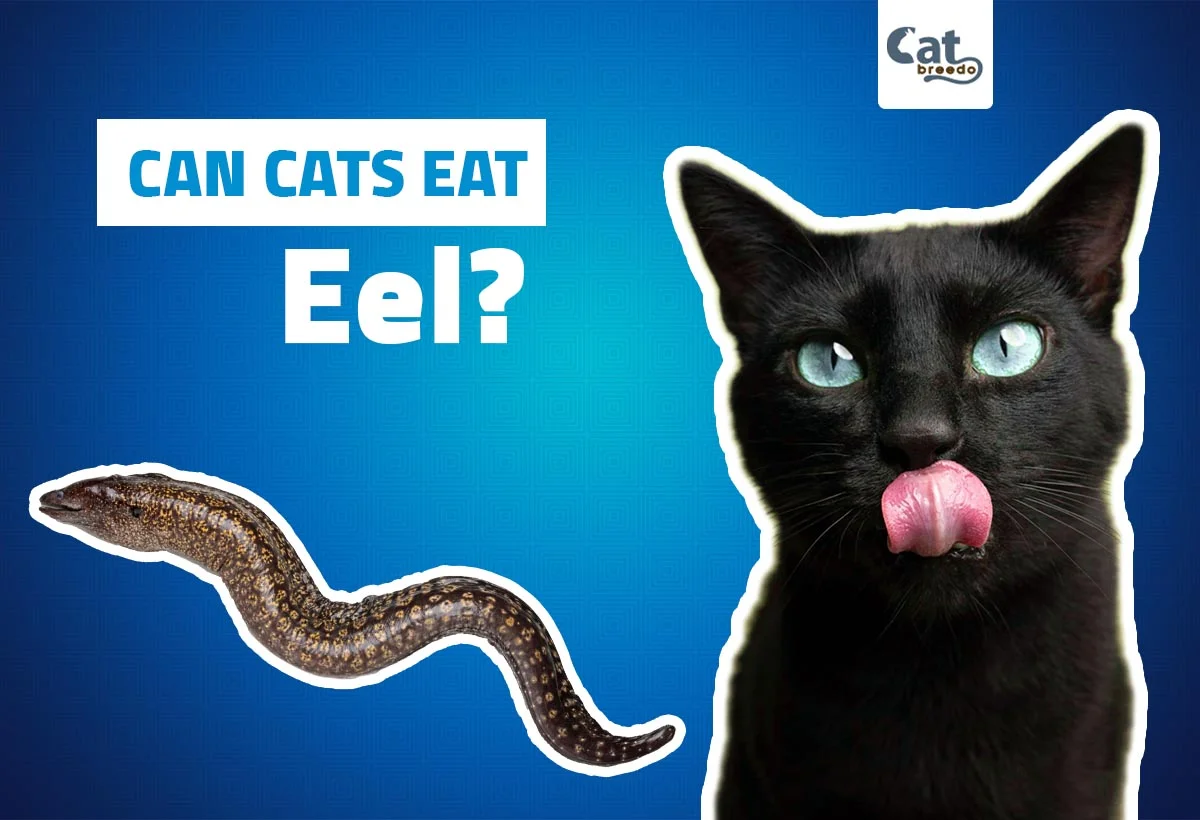
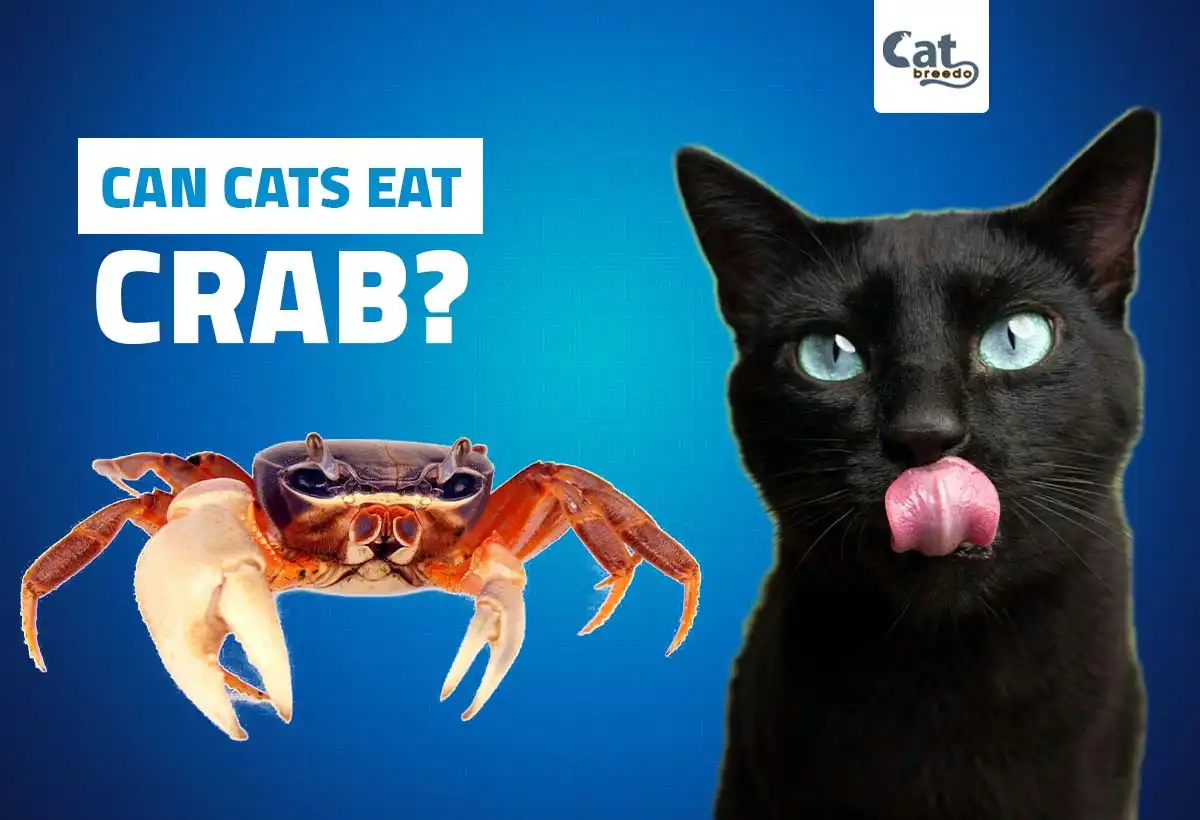
Leave a Reply